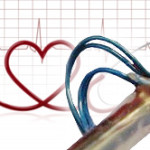 The Food and Drug Administration (FDA) has just announced that they received a report that a St. Jude Durata cardiac defibrillator lead conductor became externalized; meaning the wire carrying electricity from the heart defibrillator to the heart was exposed through its insulation, a potentially dangerous and life-threatening defect.
The Food and Drug Administration (FDA) has just announced that they received a report that a St. Jude Durata cardiac defibrillator lead conductor became externalized; meaning the wire carrying electricity from the heart defibrillator to the heart was exposed through its insulation, a potentially dangerous and life-threatening defect.
According to a Bloomberg report, a physician anonymously reported the defect to the FDA on April 17. Although the means by which this defect was reported is being questioned by some, the defect was apparently not reported to St. Jude’s itself, if it is confirmed as fact it would be the first known event of its kind for a Durata lead.
The Durata is designed to connect an implanted heart defibrillator to the heart and delivers life-saving jolts that either keep a heart beating or regulate the heart rhythm.
St. Jude introduced the Durata lead after failings of its previous device, the Riata. The Riata model of leads were removed from the market after too many reports of defects associated with it. The Riata has been associated with a high rate of failure, specifically reports of the conductive ends breaking free and either not delivering shocks at the right time or failing to deliver shocks. The exposed ends have also been linked to internal injuries, such as lacerations.
An inferior housing on the Riata leads was eventually blamed for the large number of reported defects and it was changed to a silicone material known as Optim and released as the Durata lead.
The company was not notified of the adverse event report until it was posted on the FDA’s Maude database, the Bloomberg report indicates. Experts interviewed by the source say it is rare for an adverse event report with as many specific details as contained in this one to be submitted in this means and that the agency and medical device firm are both investigating it further.
The physician’s report to the database reportedly did not include details such as the Serial number of the device, the name of the physician, or the hospital where it was collected.
A St Jude spokeswoman told Reuters the company has reviewed the report but could not confirm any details. She said no physician has contacted the company or returned the lead, and the report contains no product serial number.
“We will make every effort to learn more about the report as quickly as possible,” St Jude spokeswoman Amy Jo Meyer said in an emailed statement. “To date, there have been no instances of externalized conductors on a Durata lead reported to St. Jude Medical.”
An analyst told Bloomberg that although this is an isolated incident, more reports of Durata failures could indicate deficiencies with thinner heart defibrillator leads compared to older models which were not associated with similar adverse event complaints.
The same day the announcement was made, shares of St. Jude Medical Inc fell 6 percent, igniting fears of a possible recall.
Goldman Sachs analyst David Roman called the sell-off in St. Jude shares an over-reaction and a buying opportunity.
“The sharp negative reaction in the stock reflects the fear factor of a product recall that we ultimately do not think will materialize,” Roman said.
